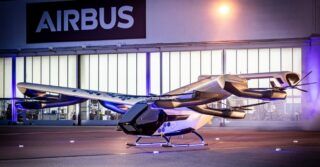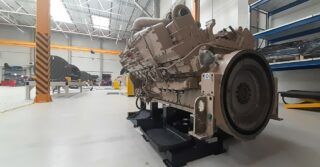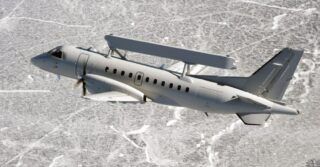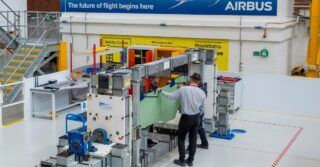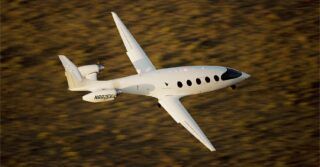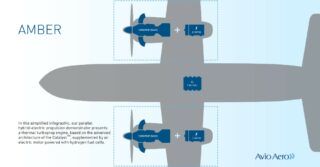The electrification of commercial aircraft will be one of the most exciting developments in aviation. Recently, a pioneering hybrid electric aircraft design was unveiled by Electric Aviation Group, a British engineering and development company.
We are starting to see more and more hybrid and fully electric vehicles on the road. The development of electric aircraft is simply a matter of time, the transition to electric aircraft will be the future direction for the industry.
Research by the global consulting firm Roland Berger emphasizes that the total number of electric aircraft designs grew steadily until 2016, after which it grows faster. In 2019, the number of electric aircraft designs increased by ~ 30%. Currently, it exceeds 200. The most research in this field is carried out in Europe (a few examples below).
The aircraft proposed by EAG is to provide a solution for flying over short distances. This means that the project is aimed at airlines serving passenger traffic on regional routes.
According to Kamran Iqbal, founder and CEO of EAG – the project concerns an aircraft that will initially have a range of about 800 nautical miles, i.e. about 1481 km at the time of take-off in 2028, and which will be able to accommodate over 70 people.
EAG has already developed and filed a total of 25 patents covering a wide range of technologies. The project also envisages the inclusion of alternative energy sources in the future, if available before 2030. It also foresees flexibility in designing future airplanes to be fully electric or carbon neutral. As battery density improves, or alternative fuels and related propulsion technologies mature and become available.
EXAMPLES:
Harbor Air, the aircraft operator that operates the largest seaplane fleet, is working on the activation of the MagniX electric propulsion system to electrify its aircraft fleet.
Royal Schiphol Group is one of those companies that focus their business activities on renewable energy and reducing energy consumption, circular economy, optimal mobility, clean environment, noise and air quality, taking care of the sustainable development of airports.
Major airlines also want to play an active role in such efforts and SAS Scandinavian Airlines, for example, last year announced a partnership with Airbus to investigate the hybrid and electric aircraft ecosystem and the infrastructure requirements for this type of aircraft. Scandinavian carrier Widerøe, for example, is working with Rolls-Royce on zero-emission aircraft.
easyJet and Airbus are already testing the potential of hybrid and all-electric short-haul aircraft in Europe by supporting an existing electric aircraft partnership with Wright Electric (the company that announced earlier this year the start of an electric drive development program for its flagship electric aircraft with 186 seats) ).


